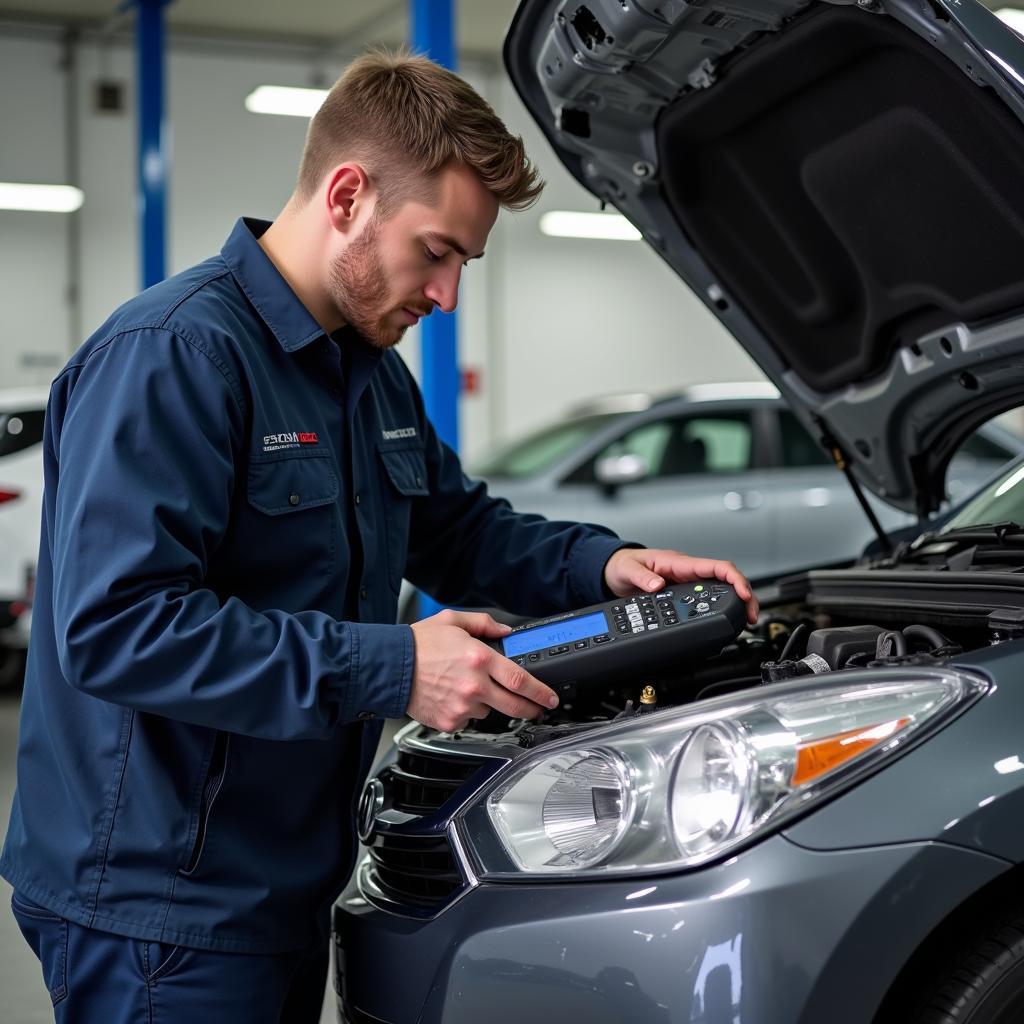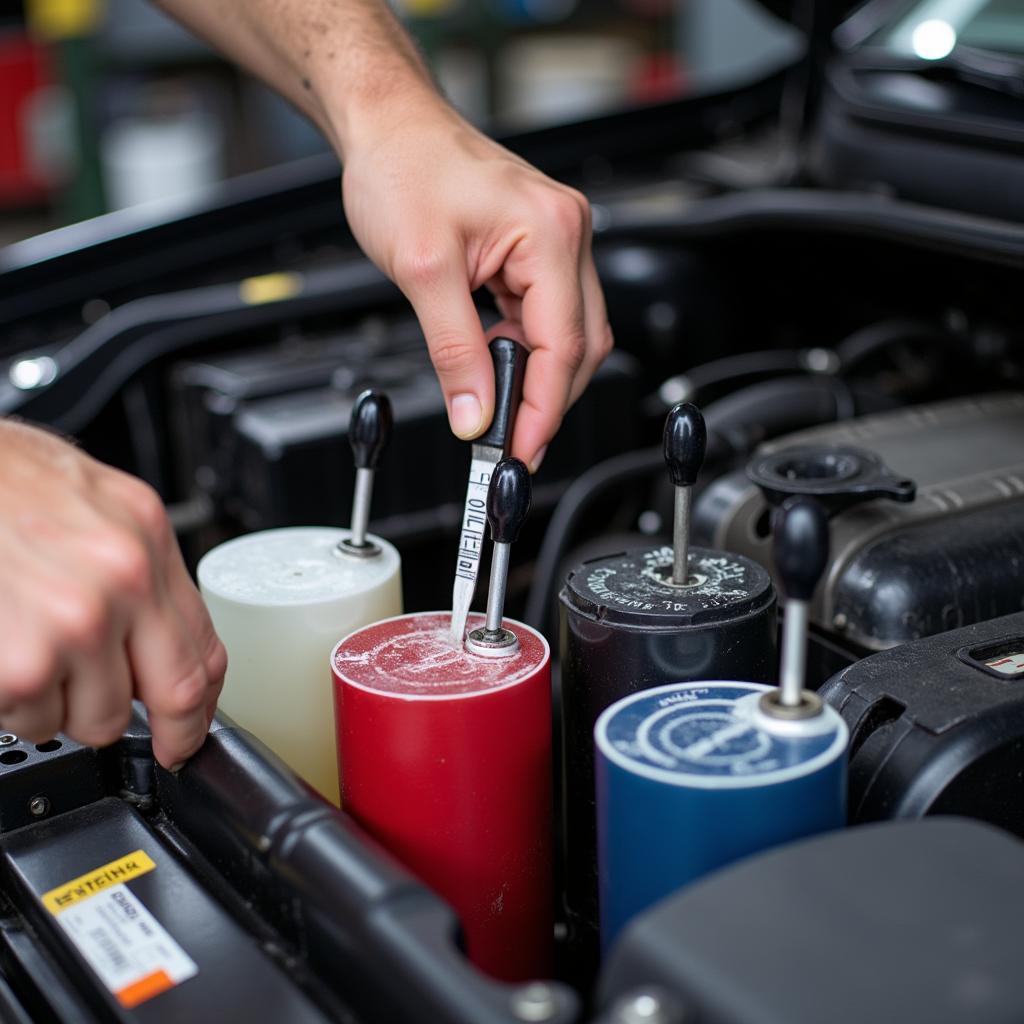Does Self Service Void a Car Warranty?
Does self-service void a car warranty? This is a common question among car owners looking to save money and maintain their vehicles. Understanding your warranty and the Magnuson-Moss Warranty Act is crucial to avoid any potential issues.
Performing your own car maintenance can be a rewarding experience, saving you money and giving you a sense of accomplishment. However, the fear of voiding the car warranty often prevents owners from tackling even basic tasks. Is this fear justified? Let’s delve into the intricacies of car warranties and self-service. You’ll learn what you can and can’t do without jeopardizing your coverage. Knowing the specifics will empower you to take control of your car maintenance while staying protected. Find out if basic tasks like oil changes and filter replacements are safe to do yourself, or if they require a trip to the dealership.
Understanding Your Car Warranty
A car warranty is essentially a contract between you and the manufacturer. It guarantees that they will repair or replace certain parts if they fail within a specified period or mileage. However, the terms of this contract can be complex. It’s important to understand your specific warranty document to know your rights and responsibilities. You might be surprised to find that routine maintenance like changing the oil doesn’t automatically require a dealer visit. Check your owner’s manual and warranty for specific guidance. If you’re unsure about something, it’s always best to consult with your dealer or a qualified mechanic. Remember, having a trusted car service expert on your side can make all the difference. If you’re looking to understand your service options, you might find this article on what a car service is for helpful: what is a car service for.
What the Magnuson-Moss Warranty Act Says
The Magnuson-Moss Warranty Act is a federal law that protects consumers against unfair warranty practices. This act clarifies that you are generally allowed to perform routine maintenance yourself without voiding your warranty. The manufacturer cannot require you to use their branded parts or services unless they are provided free of charge. This allows you some flexibility in choosing where to service your leased car and who performs the work, giving you more control over your vehicle’s maintenance. For leased vehicles specifically, you’ll want to learn about the servicing process – find out what happens if a leased car needs service here: what happens if a leased car need service.
Does Self-Servicing Always Protect Your Warranty?
While the Magnuson-Moss Warranty Act protects your right to perform self-service, there are some caveats. If you damage your car while attempting a repair, the manufacturer might not cover the resulting damage under warranty. It’s important to be realistic about your skills and abilities. If you’re not comfortable performing a particular task, it’s best to leave it to a professional. Consider factors like the complexity of the repair and the specialized tools required. Don’t take unnecessary risks that could void your warranty and cost you more in the long run. If you’re wondering about the frequency of car servicing, you might want to know: do you have to have your car serviced every year.
Proving Proper Maintenance
Keeping detailed records of your self-service maintenance is crucial. This includes receipts for parts, dates of service, and a description of the work performed. These records can serve as proof that you maintained your vehicle properly, should any warranty issues arise. They also demonstrate your diligence in caring for your car. Proper record-keeping can protect you from potential disputes with the manufacturer and ensure your warranty remains valid. Neglecting regular service can also impact your warranty, so it’s essential to understand the consequences. This article addresses concerns about not getting your car serviced: is it bad to not get my car serviced.
Choosing the Right Garage for Your Service
While self-service can be beneficial, sometimes professional help is necessary. Choosing the right garage can be crucial for maintaining your warranty. You’re not obligated to use the dealership for every service. The key is to find a reputable garage that uses quality parts and employs qualified technicians. Research your options, read reviews, and ask for recommendations. Find out if the garage specializes in your car’s make and model. A trusted independent garage can often provide excellent service at a more competitive price. This article explores your options for choosing a garage: can i service my car at any garage.
 Mechanic Working on a Car in a Garage
Mechanic Working on a Car in a Garage
Conclusion
Does self-service void your car warranty? Not necessarily. Thanks to the Magnuson-Moss Warranty Act, you have the right to perform many maintenance tasks yourself. However, it’s crucial to understand your warranty, keep meticulous records, and choose your repairs wisely. By being informed and proactive, you can save money on maintenance without jeopardizing your warranty coverage.
FAQ
- Can I change my own oil without voiding my warranty? Yes, generally you can.
- Do I have to use the dealership for all repairs? No, you can choose a reputable independent garage.
- What kind of records should I keep for self-service maintenance? Receipts for parts, dates of service, and descriptions of the work performed.
- What if I damage my car while attempting a repair? The manufacturer might not cover the damage under warranty.
- Can the manufacturer dictate which parts I use? Not unless they provide them for free.
- Where can I find information about my specific car warranty? In your owner’s manual and warranty documentation.
- What should I do if I’m unsure about a specific repair? Consult with your dealer or a qualified mechanic.
Common Scenarios
- Scenario 1: You change your oil using the correct grade and filter. This will generally not void your warranty.
- Scenario 2: You attempt a complex engine repair and cause further damage. The manufacturer may deny warranty coverage for the resulting damage.
- Scenario 3: You use aftermarket parts for a routine repair. This generally won’t void your warranty, but it’s important to ensure the parts meet or exceed OEM specifications.
Further Reading
For more information on car maintenance and warranties, explore other articles on our website, such as “Do you have to have your car serviced every year?” and “Is it bad to not get my car serviced?”.
Need further assistance? Contact us via WhatsApp: +1(641)206-8880, Email: [email protected] or visit us at 456 Oak Avenue, Miami, FL 33101, USA. Our customer service team is available 24/7.

